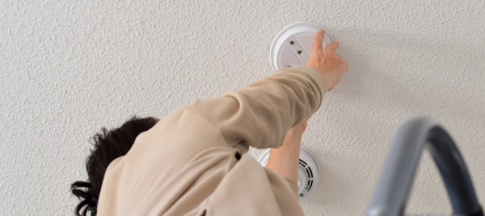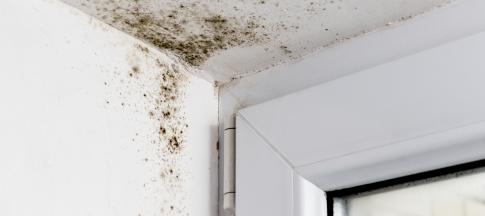
Amateur landlord renting out your house, or building a buy-to-let portfolio? Whatever kind of landlord you are, you’ll need to take some steps before you can get your property on the rental market.
We’ve put together a landlord checklist to help when you’re starting out.
Registering as a landlord
If you rent out property in Wales, Scotland, or Northern Ireland, you’ll need to register as a landlord. You can do this online at Rent Smart Wales Landlord Registration, Scottish Landlord Register, or NI Direct.
If you aren’t registered as a landlord, you could face a fine or even prosecution from your local authority.
In England, currently only landlords of HMOs (houses of mixed occupancy) must register on their local authority’s HMO register.
The possibility of creating a national landlord register in England has been discussed as part of proposed new landlord laws in the Renters Reform Bill — but nothing has been set in stone yet.
Landlord licensing
While England doesn’t have a landlord register, some areas do require landlords to have a license. Other places only ask those letting HMOs (houses in multiple occupations) to have one.
Check with your local council to see if you need to register for a license.
Read our complete guide to landlord licensing to find out more.
Tenant referencing
It’s a legal requirement to carry out tenant referencing. The scale of this is up to you, but at a minimum you’ll need to do a credit check on your tenants.
If you don’t and you have landlord insurance, it could prevent you from making a claim.
Different insurers may have different criteria on what counts as an acceptable tenant reference check. It’s worth finding out what your insurer expects when you take out your insurance.
Even if you don’t want to do a full-on background check, it’s a good idea to ask for a reference from your tenants’ previous landlords. That way, you’ll get an idea of how well they might keep up with rent payments.
Right to rent checks
Landlords renting properties in England must perform right to rent checks on tenants to make sure they’re legally allowed to live in the UK. Failing to carry out these checks could lead to a hefty fine.
The Home Office recommends using a certified Digital Identity Service Provider (IDSP) to do right to rent checks.
If you’d rather carry out a right to rent check yourself, scan passports, ID documents and other relevant proof of the right to rent and keep your copies safe.
Tenancy agreements
While not compulsory, it’s a good idea to have with a signed contract between the landlord and tenant, stating the agreed terms of the tenancy.
Legal rights, responsibilities and the length of the tenancy should all be outlined, as well as any conditions you’d like the tenant to follow.
You could check with a solicitor to make sure your tenancy agreement is definite.
Tenancy Deposit Scheme
Asking your tenants to pay a deposit before moving in? You’re legally required to put it in one of three government-approved deposit protection schemes within 30 days of receiving it: The Deposit Protection Service, MyDeposits, or The Tenancy Deposit Scheme.
Change the locks
Changing the locks on your property isn’t a legal requirement, but could be a good idea if you think past tenants may have made copies of keys.
It also shows new tenants that you care about their safety and privacy and have taken steps to protect them against intruders in their home.
Energy performance certificate (EPC)
Your rental property must have an energy performance certificate (EPC) with a minimum efficiency rating of E. You won’t be able to rent your property out if it’s any lower than this.
When your tenants move in, you’ll need to give them a copy of the EPC, informing them how much the rented house or flat will cost to run.
Electrical safety checks
Before anyone moves in, electrical and appliance checks must be carried out to make sure the property is safe. Make sure appliances display the CE mark (the manufacturer claims that the product conforms with European safety laws).
Going forward, regular electrical checks and maintenance need to be done as part of your landlord responsibilities, while appliances should be regularly checked for safety.
The safest way to carry out any electrical work on your property is to use a registered electrician.
Gas safe register
If there’s a gas supply in your property, you’ll need to give occupants a copy of the gas safety certificate at the start of their tenancy. Gas safety inspections need to be carried out each year.
Fire safety regulations
Before you get your rental property on the market, check that it has adequate fire safety precautions in place — another legal requirement for landlords.
All properties need at least one smoke alarm fitted per floor of the house and a carbon monoxide alarm in all rooms with a solid fuel-burning appliance.
Homes considered HMOs need extra fire safety features, such as fire extinguishers and fire doors.
Furniture and furnishings
If you’re letting your property furnished, make sure all the furniture and accessories comply to fire safety standards. They must be suitably labelled to show they meet the specified ignition resistance levels.
Carry out an inventory
It’s in your interest, though not a legal requirement, to draw up an inventory before your tenants move in. The inventory should contain an overview of the whole property, a list of all its contents, and details about the condition of the property.
Landlord insurance
Landlord insurance isn’t compulsory, but it could offer peace of mind – especially since a regular home insurance policy doesn’t cover rental properties.
Landlord insurance usually has different levels of coverage. For example, our landlord insurance offers building cover, contents or a combined policy, including landlord liability insurance as standard.
Landlords are liable to pay income tax on the profit from renting. An accountant can advise you further on taxes and allowable expenses, so you’ll know how much to set aside to cover these payments.
Managing the property
Provide a clean and liveable home
As a landlord, you have a legal obligation to provide a safe home for your tenants that is free from health hazards. Local councils use the Housing Health and Safety Rating System (HHSRS) to make sure properties are safe and liveable.
From uneven stairs to patches of dampness and mould, several issues could cause your property to be flagged up for an HHSRS inspection.
Avoid this by carefully checking your property before tenants move in, making sure it’s hazard-free and comfortable enough for people to live in.
Take meter readings and update utility suppliers
While tenants are usually responsible for paying utility bills, it’s still essential that you tell the suppliers of your property when new occupants move in.
Taking water, gas and electric meter readings as soon as previous tenants move out will help avoid issues around who owes what.



